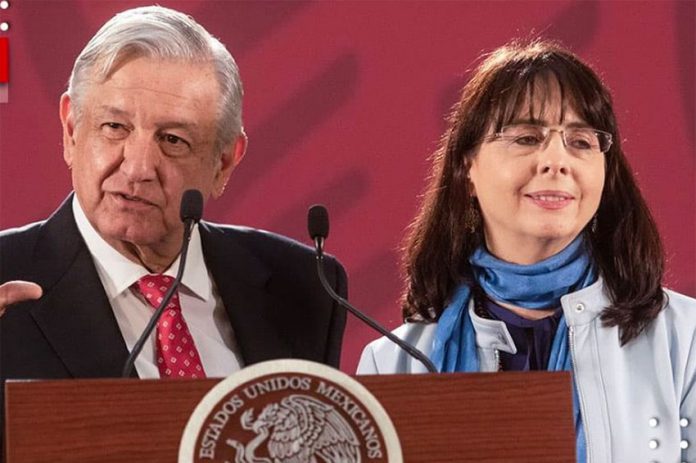Scientists have described the government’s cuts to federally funded laboratories and scientific institutes as a serious threat to the future of Mexican research.
As part of wider austerity measures, the López Obrador administration reduced scientific organizations’ budgets for fuel and office supplies by 30% and cut the funds available for international travel and the hiring of contract workers by 50%.
The National Council of Science and Technology (Conacyt) saw its funding cut by 12% in the 2019 budget, although the total amount of resources allocated to science, technology and innovation across all federal agencies increased slightly.
Still, scientists are concerned about the direction in which the government is heading.
José Luis Morán López, a physicist at the Institute for Scientific and Technological Research of San Luis Potosí (IPICYT) and president of the Mexican Academy of Sciences, told Science Magazine that “a general atmosphere of pessimism” has pervaded the scientific community.
Biophysicist Marcia Hiriart Urdanivia of the National Autonomous University said that “science has never been very well supported in Mexico” but the current situation “could be fatal.”
Many scientists are supportive of President López Obrador’s crackdown on corruption and want to help him achieve his so-called fourth transformation.
But Fabián Rosales Ortega, an astronomer at the National Institute for Astrophysics, Optics and Electronics (INAOE), charged that “to do that, we need resources.”
He explained that INAOE had to fire 20 experienced support staff and cut expenses related to travel, including to its own telescopes and observatories.
Other public researchers told Science that cuts to laboratories were made without considering their unique needs.
For example, Morán López said that electricity restrictions make it difficult for IPICYT to operate its supercomputer.
Many scientists say that declining government funding will make researchers more dependent on foreign grants and greater numbers will likely seek opportunities abroad.
In the face of the criticism, Conacyt director Elena Álvarez-Buylla defended the austerity measures, stating that their aim is not to hamper the work of scientists but rather address inefficiencies in the country’s scientific system.
But scientists are not convinced and have pointed to the president’s rhetoric as evidence that their profession is under attack.
In February, López Obrador said that there are “mafias” within the scientific community, while last month he warned researchers and scientists that the days of “academic tourism” are over, charging that a lot of international scientific work and collaboration can now be completed via the internet.
But Álvarez-Buylla clarified that “in no way is travel necessary to perform substantial research work prohibited” and said that the “mafias” comment referred to high-ranking officials that worked at Conacyt in past administrations.
The government said in February that billions of pesos have been embezzled by Conacyt through its scholarship and grant programs.
But under her administration, Álvarez-Buylla claims that the agency is back on track.
She pointed out that Conacyt, Mexico’s principal research granting agency, has allocated resources to nearly 500 projects that applied for funding during the previous government but were unsuccessful.
Researchers say that it is unusual that Conacyt has not yet offered basic science grants this year but according to Álvarez-Buylla, an application period for such grants will open “in the coming weeks” and a total of 500 million pesos (US $26.3 million) will be up for grabs.
On last week’s 50th anniversary of the Apollo moon landing it was recalled that the Conacyt chief described the event as “useless” during a conference in 2015.
Source: Science (en)
